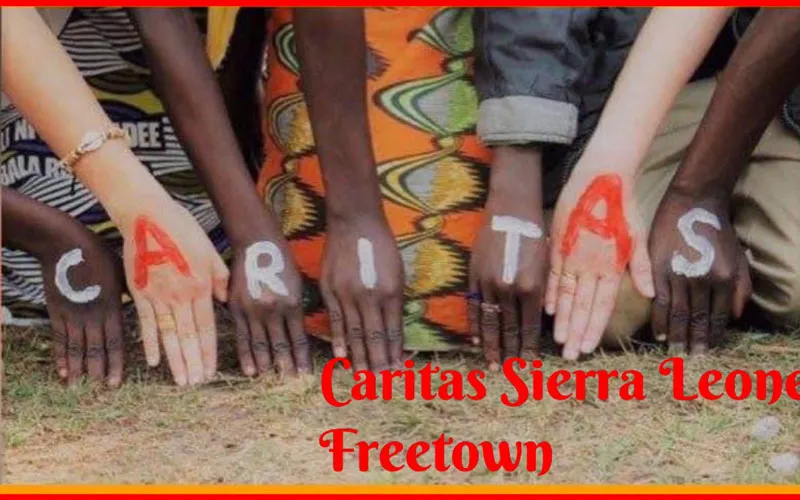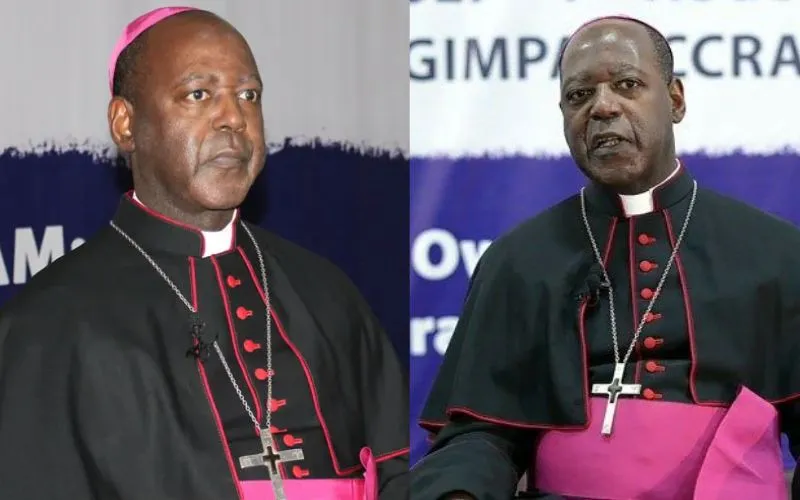What the survivors were left to deal with, however, were health challenges as a result of the infection, including frequent body aches and weakness, poor eyesight, and reproductive challenges. Many, Mustapha said, have been left incapacitated, unable to fend for their families and rely on support from donors.
“I suffer a number of health challenges but mostly, the disease took my appetite away. It is now 5pm yet I have not eaten anything since morning. Lifting slightly heavy objects also leaves my body with serious aches,” Mustapha said.
Many Ebola survivors’ eyesight has been deteriorating, Mustapha said, adding that some have gone totally blind over the years.
Many, he said, had lost their sex drive while women, including young girls, do not menstruate.
Mustapha is the liaison between Caritas Freetown and the Sierra Leone Association of Ebola Survivors (SLAES), a support group with a membership of 4,052 survivors. Caritas Freetown activities at SLAES include yearly distribution of food, household items and money to Ebola survivors all over the country.
(Story continues below)
Initially, Caritas Freetown ran a feeding program for the Ebola survivors in Freetown, providing rice to the families several times a month. But with time, the program became unsustainable, according to Fr. Peter Konteh, the Director of Caritas Freetown, who mobilized funds to start sustainable economic projects for the survivors.
Beginning 2018 and through, the charity arm of the Church in Freetown, in partnership with Caritas Germany, ran the project, “Enhancing Ebola survivors’ income generating and educational opportunities project in the western area Sierra Leone,” which equipped women in the western part of the country with technical skills in catering, event decor and cosmetology.
Justifying the focus on women in the Southern part of the country in a past interview with ACI Africa, the Caritas Freetown Director said, “It is the Diocesan boundary. Besides, it is the Western side of Sierra Leone that was hit the most by the Ebola outbreak. There are so many Ebola survivors in this area from impoverished backgrounds despite living close to the city.”
Other components of the project included educational support to school going children of Ebola survivors and provision of healthcare services to 1,000 Ebola survivors, widows, orphans and children of Ebola survivors.
Towards the end of 2019, Caritas Freetown, through mobile clinics, treated 1,263 Ebola survivors drawn from members of 10 communities who were provided with accessible and free of cost medical services at the comfort of their varied localities.
Those treated, Fr. Peter told ACI Africa during the 14 August 2020 interview, had various symptoms including headaches, chronic pain, ocular problems, lack of erection, loss of hair, early menopause and ear problems.
The project was also aimed at enhancing psychosocial support including trauma healing, counseling and body mapping for survivor’s children and adults.
During the implementation of the project, some 50 women drawn from impoverished backgrounds were taken through six months of intensive skills training in catering, event decor and cosmetology, practical sessions and apprenticeship and allowed to graduate in a colorful ceremony.
The women were then awarded certificates of completion and equipped with start-up kits to set up their income-generating ventures in their specific areas of training.
In the November 8 interview with ACI Africa, Mustapha expressed gratitude for the support of Caritas Freetown, saying, “We have seen the lives of women in our association transform gradually. They were given money to start businesses and are now supporting their families. Men were also given electric cars and they are doing well.”
“Just recently, our offices across the country had huge rent arrears and no organization was willing to help us. When we came to Fr. Konteh, he settled our debt immediately. That is who he is. He never fails us whenever we come to him seeking help,” the Caritas Freetown volunteer said about the member of the Clergy of Freetown Archdiocese.
He added, “I thank Fr. Konteh personally because he gave me a fresh start when I had lost all hope to live. It is him who placed me here to serve other Ebola survivors.”
In his message to the Caritas Director, Mustapha said, “I pray that God gives Fr. Konteh strength to continue doing what he has been doing for us, especially in the provision of medication. The world might have moved on from the devastation of Ebola but for survivors, the situation gets complicated each passing day. People continue to lose their sight, and those who were orphaned at a tender age have attained the age to attend college, with no one to support them through school.”
This story was first published by ACI Africa on 15 November 2022.
Agnes Aineah is a Kenyan journalist with a background in digital and newspaper reporting. She holds a Master of Arts in Digital Journalism from the Aga Khan University, Graduate School of Media and Communications and a Bachelor's Degree in Linguistics, Media and Communications from Kenya's Moi University. Agnes currently serves as a journalist for ACI Africa.








